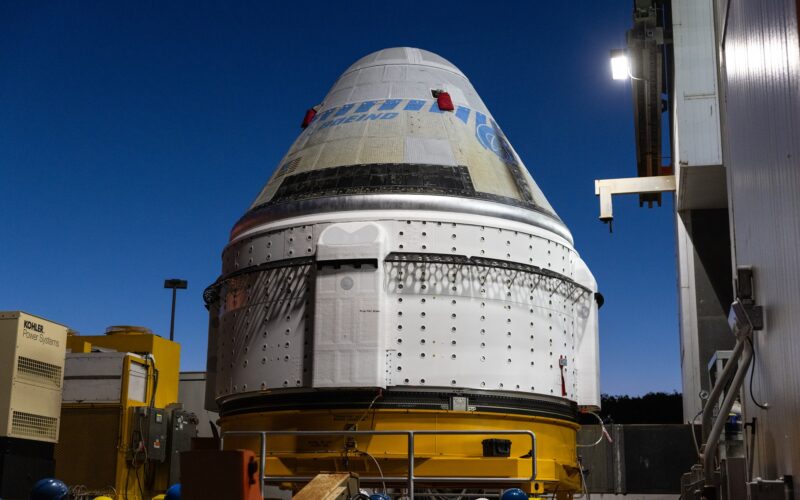NASA and United Launch Alliance (ULA) have delayed the launch of the Boeing Starliner spacecraft over safety concerns that arose as astronauts were onboard the capsule ready for liftoff to the International Space Station (ISS).
ULA, a space launch company ran by Boeing and Lockheed Martin, confirmed that an issue arose with part of the launch vehicle, Centaur, and out of an “abundance of caution” the mission was canceled around two hours before liftoff.
“We scrubbed the Crew Flight Test (CFT) launch attempt today due to an observation on a liquid oxygen self-regulating solenoid relief valve on the Centaur upper stage,” ULA said in a statement.
The company said that the team needs additional time to complete a full assessment and plans to target the next launch attempt no earlier than May 10, 2024.
At around 02:00, NASA confirmed on social media that the launch from Space Launch Complex 41 in Cape Canaveral, Florida, had been postponed.
Out of an abundance of caution for the safety of the flight and pad crew, we scrubbed the Crew Flight Test (CFT) launch attempt today due to an observation on a liquid oxygen self-regulating solenoid relief valve on the Centaur upper stage. The team needs additional time to…
— ULA (@ulalaunch) May 7, 2024
“Today’s #Starliner launch is scrubbed as teams evaluate an oxygen relief valve on the Centaur Stage on the Atlas V. Our astronauts have exited Starliner and will return to crew quarters,” NASA wrote.
ULA added in a separate post: “ULA Launch Director Tom Heter III has made the decision to the launch team that launch operations will not continue tonight for #AtlasV and #Starliner.”
The Atlas V rocket had been due to launch Boeing’s Crew Space Transportation (CST)-100 Starliner spacecraft with two NASA astronauts, Barry “Butch” Wilmore and Sunita “Suni” Williams onboard.
In what will be CFT’s first human launch, the Starliner spacecraft is designed to separate from Atlas V and then use its own thrusters to reach ISS.
Boeing’s Starliner previously docked with the space station in May 2022, but was uncrewed.
The mission has faced previous delays including a failed mission in December 2019 when a clock problem caused the spaceship to miss its intended orbit.
ULA has launched more than 155 missions since its inception.


3 comments
Well, I’ll be taking very careful note as to aircraft type if I travel with Turkish. I have become ultra fussy to my safety and that means choosing my preferred airline (manufacturer) type. Fly Froggie ‘planes. I shall have no qualms turning back from the boarding gate if that type was not an Airbus I shall have booked. I shall not be the first so to do either. That one airline manufacturer, oh! it’s Boeing, has failed for 10 solid years to get a rocket off the ground as well. NASA shall have to turn to Musk more and more.
Obviously they’re aiming for the 80% discount
Instead of buying and buying aircrafts they should be more carefull about their employee treatment…especially in the B737 fleet…